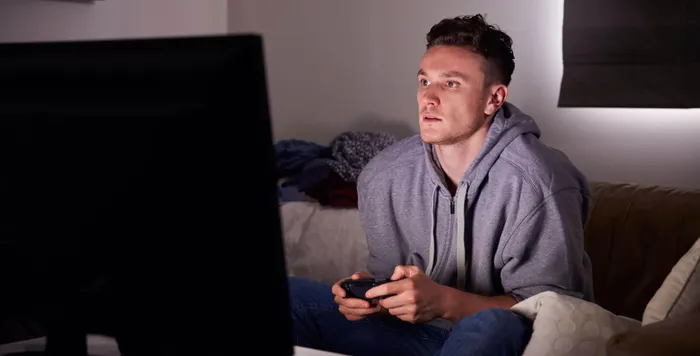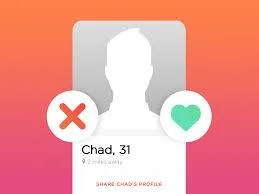Men are struggling to find love. Here’s why.

The picture of a lonely young man playing video games in his parents’ basement is, by now, a cliché, but it’s one of those clichés that speaks to something true.
Image: Supplied
Shadi Hamid
Men are disappointing. I’ve heard it from so many of my female friends that I’ve lost count. The data backs it up too: Men are falling behind women on most of the metrics that matter, whether it’s being employed, graduating from high school and college, or just having friends. My friend Richard Reeves wrote a whole book, which I strongly recommend, popularizing this view of what he calls the “male malaise.”
The picture of a lonely young man playing video games in his parents’ basement is, by now, a cliché, but it’s one of those clichés that speaks to something true. Women, for their part, are growing increasingly frustrated that men aren’t showing up - in a quite literal sense. But this paralysis isn’t limited to the stereotypical underachieving male. Even men who are professionally successful or otherwise “together” find themselves frozen by the overwhelming complexity of modern relationship choices. In the 1970s and 80s, the percentage of men who weren’t married by age 40 was in the single digits. By 2021, that number had increased, remarkably, to 28 percent.
The topic has gained fresh urgency, with a spate of viral essays examining the perils of modern dating dynamics. The problem with men is getting worse. Or at least that’s what several pieces in the New York Times seem to suggest. At a party recently, I found myself embroiled in a long debate about “heterofatalism,” drawing on a long essay by the writer Jean Garnett, which provoked dueling reactions from both sides of the gender divide.
In her article, Garnett recounts a promising first date with a man. A week later, he pulls back from her, with the admittedly lame excuse that he is going through “some intense anxiety” and needs to “lay low.” Garnett writes that “a man should want me urgently or not at all,” but that single, straight men appear to be lacking such urgency. They’re not sure. Even at middle age, they don’t know what they want - or they know what they want but seem helpless to act on that knowledge. They’re nervous about relationships, and so the easier option is to dabble and deflect.
In another piece from June, an intellectual property professional in Chicago named Rachel Drucker goes out for dinner on a Saturday night and observes “a noticeable absence of men,” which she believes reflects a “collective shift” in public life. “Men, where have you gone?” she asks (which led some men to reply, “we’re right here”).

Men often sabotage themselves on dating apps
Image: Supplied
These accounts are both new and old. For a few years now, reaching a peak after the covid pandemic, women have been noting the difficulties and disappointments of finding a good man, leading some to exit the dating game altogether. To the extent men complain about dating women, they tend not to do so in major newspapers or magazines, since that would probably seem retrograde. At the party I went to, some of the participants tried - to various degrees - empathizing with men. If men are struggling, perhaps we should understand why.
One oft-cited effect of the #MeToo movement was that men became reluctant to approach women in the wild environs of real life. This may have been a good thing, on balance, but good things also inevitably bring with them unintended consequences. Dating apps, meanwhile, create the illusion of unlimited choice, but it’s just that: an illusion. Where men, once upon a time, would look for partners in their own social circles, now anyone in a 10-mile radius (or, for that matter, a 100-mile radius) is potentially within reach.
But the problem, for men, is that most of the women they swipe right on will not swipe back, creating an expectation of abundance that can never be met. I remember the first time a female friend showed me her Tinder profile. She had thousands of likes, and it was impossible to sort through even a fraction of them. This is the free market of sex and relationships, and in any free market, there will be winners and losers- and likely more of the latter than the former.
As the narrator in French author Michel Houellebecq’s novel “Whatever” despondently reflects:
“It's a fact … that in societies like ours sex truly represents a second system of differentiation, completely independent of money; and as a system of differentiation it functions just as mercilessly. … Some men make love every day; others five or six times in their life, or never. Some make love with dozens of women; others with none.”
My colleague Damir Marusic insists that it’s always been this way, but men used to know how to weather rejection (say, at a bar) and not take it too personally. Young men, today, seem less resilient, complaining on podcasts and Reddit about the so-called 80/20 rule, according to which 80 percent of women, allegedly, only go for the top 20 percent of guys.
“Gender polarization” is another culprit, furthering the sense of male resentment. In recent years, young men have veered to the political right, while young women - particularly in big, blue cities - have become more reliably liberal. In an era where the political is personal, this creates a new set of dealbreakers. Mixed marriages are approaching extinction. Only about 4 percent are between Democrats and Republicans.
But it's not just politics that creates these impossible middle grounds. In our fragmented culture, many of us find ourselves caught between competing identities and values, making it increasingly difficult to find someone who fits our different worlds.
I happen to be a single person who would like to get married. So this is a personal interest for me as well as an academic one. As I’ve written previously, I have regrets about not prioritizing finding a partner earlier in life. As we get older, we get more particular, more set in our ways. My own situation is somewhat unique. I would like to raise my kids Muslim, so this limits my potential pool of partners to either Muslims or non-Muslims who are willing to raise their kids Muslim (which can be a difficult thing to ask of someone).
In other ways, my problem is representative. I try to practice my religion, but I’m also not as religious as a lot of other Muslims. At the same time, I’m more religious than most cultural or “secular” Muslims. Islam matters to me. Living in a free, liberal society, I often find myself stuck in the in-between. But so many of us find ourselves stuck, wanting to want to get married, longing for connection but also stubborn, desiring but not knowing how to fulfill that desire. How to choose when there are so many choices? How to prioritize politics and religion when deciding who to spend the rest of our lives with? We only have one life. So, we should live it. But we also hover in the knowledge of all the other lives we could have lived but never will. And that will never be an easy thing.